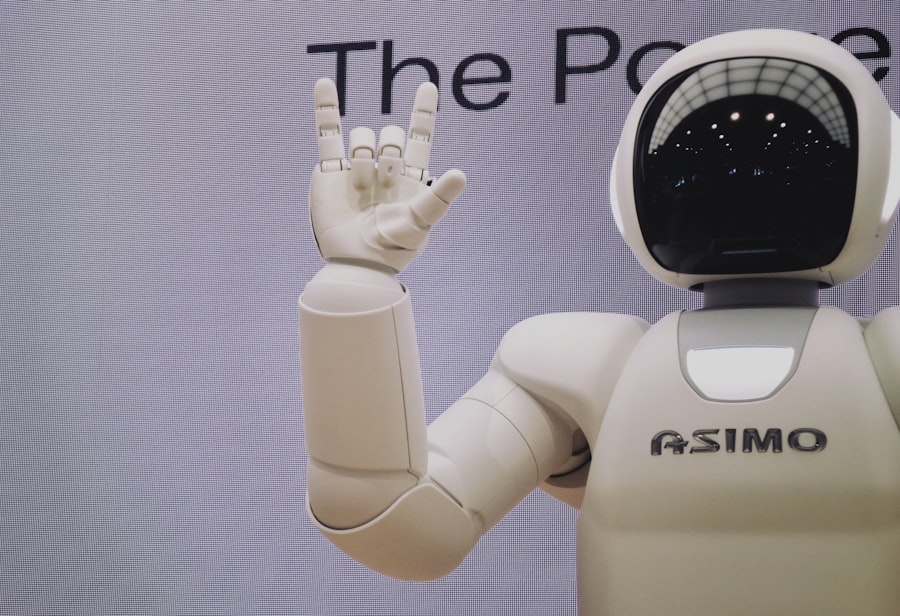Digital twins represent a revolutionary advancement in technology, enabling the creation of virtual replicas of physical entities, processes, or systems. These digital counterparts are powered by real-time data, allowing for simulations, analysis, and optimization in various fields such as manufacturing, healthcare, urban planning, and more. As organizations increasingly adopt digital twin technology to enhance operational efficiency and decision-making, the implications for privacy have become a focal point of discussion.
The integration of vast amounts of personal and sensitive data into these models raises significant concerns regarding data security, user consent, and the ethical use of information. The concept of a digital twin extends beyond mere data representation; it encompasses the dynamic interaction between the physical and digital realms. This interaction often necessitates the collection of extensive data from individuals, including behavioral patterns, health metrics, and environmental factors.
As a result, privacy concerns emerge as a critical issue that must be addressed to ensure the responsible development and deployment of digital twins. The challenge lies in balancing the benefits of enhanced insights and efficiencies against the potential risks to individual privacy and data security.
Key Takeaways
- Digital twins are virtual representations of physical objects or systems that can be used for monitoring, analysis, and simulation.
- Privacy concerns in digital twins impact the collection and use of personal data for creating and maintaining these virtual models.
- Privacy regulations and compliance play a crucial role in the development of digital twins to ensure the protection of personal data.
- Ethical considerations are important when using personal data for digital twins, and it is essential to prioritize the privacy and consent of individuals.
- Balancing privacy and innovation is a key challenge in the development of digital twins, as it requires finding ways to use personal data while respecting privacy rights.
The Impact of Privacy Concerns on Data Collection for Digital Twins
Data Collection vs. Privacy Rights
The necessity to gather comprehensive datasets to create accurate and functional digital twins can clash with individuals’ rights to privacy. For instance, in healthcare applications, creating a digital twin of a patient may require sensitive health information, including genetic data, medical history, and lifestyle choices.
The Consequences of Data Misuse
The potential for misuse or unauthorized access to this data can deter individuals from consenting to its collection, thereby limiting the effectiveness of digital twins in improving patient outcomes. Moreover, the fear of data breaches and identity theft can lead to heightened scrutiny over how data is collected, stored, and utilized.
Navigating the Complex Landscape of Data Responsibility
Organizations must navigate a complex landscape where they are not only responsible for ensuring the accuracy and integrity of the data but also for protecting it from malicious actors. This dual responsibility can lead to a cautious approach in data collection practices, often resulting in incomplete datasets that hinder the development of robust digital twins.
Privacy Regulations and Compliance in the Development of Digital Twins

The development of digital twins is heavily influenced by existing privacy regulations that govern data collection and usage. Laws such as the General Data Protection Regulation (GDPR) in Europe and the California Consumer Privacy Act (CCPA) in the United States impose strict guidelines on how personal data can be handled. These regulations require organizations to obtain explicit consent from individuals before collecting their data, provide transparency regarding data usage, and ensure that individuals have the right to access or delete their information.
Compliance with these regulations is not merely a legal obligation; it also serves as a framework for building trust with users. Organizations that prioritize compliance are more likely to foster positive relationships with their customers, as individuals feel more secure knowing their data is being handled responsibly. However, navigating these regulations can be challenging for companies developing digital twins, particularly when operating across multiple jurisdictions with varying legal requirements.
This complexity necessitates a robust compliance strategy that incorporates legal expertise and technological solutions to ensure adherence to privacy laws while still enabling innovation.
Ethical Considerations in the Use of Personal Data for Digital Twins
The ethical implications surrounding the use of personal data in digital twins extend beyond mere compliance with regulations. Organizations must grapple with questions about informed consent, data ownership, and the potential for bias in algorithms that utilize this data. Informed consent is particularly crucial; individuals should not only be aware that their data is being collected but also understand how it will be used and the potential consequences of its use.
This transparency is essential for fostering an ethical approach to data collection. Additionally, issues of data ownership arise when considering who has rights over the information used to create digital twins. If an individual’s health data is used to develop a digital twin for predictive analytics in healthcare, who ultimately owns that digital twin?
Is it the individual whose data was used, or the organization that created it? These questions highlight the need for clear ethical guidelines that address ownership rights and responsibilities in the context of digital twins. Furthermore, there is a risk of bias in algorithms that rely on personal data; if the datasets used to train these algorithms are not representative or are skewed in some way, the resulting digital twins may perpetuate existing inequalities or lead to inaccurate predictions.
Balancing Privacy and Innovation in the Development of Digital Twins
Striking a balance between privacy and innovation is one of the most pressing challenges facing organizations developing digital twins. On one hand, the potential benefits of digital twins—such as improved efficiency, predictive maintenance, and personalized services—are immense. On the other hand, these advancements often come at the cost of individual privacy.
Organizations must find ways to innovate while respecting privacy rights and ensuring that personal data is handled ethically. One approach to achieving this balance is through the implementation of privacy-by-design principles during the development phase of digital twins. By integrating privacy considerations into the design process from the outset, organizations can create systems that minimize data collection and enhance user control over their information.
Additionally, organizations can leverage advanced technologies such as federated learning, which enables machine learning models to be trained on decentralized data without transferring sensitive information to a central server.
Security Measures for Protecting Personal Data in Digital Twins

Protecting Personal Data in Digital Twins
Implementing robust security measures is crucial to safeguard the vast amounts of personal data used in digital twins from unauthorized access and breaches. To achieve this, organizations must adopt a multi-layered security strategy that combines technical safeguards and organizational policies.
Technical Safeguards
This includes encryption protocols for data at rest and in transit, access controls that limit who can view or manipulate sensitive information, and regular security audits to identify vulnerabilities.
Employee Training and Awareness
Furthermore, organizations should invest in employee training programs focused on cybersecurity awareness. Human error remains one of the leading causes of data breaches; therefore, equipping employees with knowledge about best practices for handling sensitive information can significantly reduce risks.
Incident Response Planning
Additionally, incident response plans should be established to ensure that organizations are prepared to act swiftly in the event of a data breach, minimizing potential damage and maintaining user trust.
Public Perception and Trust in Digital Twins and Privacy
Public perception plays a crucial role in the adoption and success of digital twin technology. As awareness of privacy issues grows among consumers, organizations must actively work to build trust with their users. Transparency is key; companies should communicate openly about how they collect, use, and protect personal data within their digital twin systems.
Engaging with users through educational initiatives can demystify the technology and alleviate concerns about privacy violations. Moreover, organizations can enhance public trust by demonstrating their commitment to ethical practices through third-party audits or certifications related to data protection standards. When consumers see that an organization prioritizes privacy and adheres to best practices, they are more likely to embrace digital twin technology rather than view it with skepticism or fear.
Building this trust is essential not only for individual organizations but also for fostering broader acceptance of digital twins across various industries.
The Future of Privacy Concerns in the Development of Digital Twins
As technology continues to evolve, so too will the landscape of privacy concerns surrounding digital twins.
The ability of AI algorithms to analyze vast datasets raises questions about how personal information is processed and whether individuals retain control over their own data.
Looking ahead, it will be essential for organizations developing digital twins to stay ahead of regulatory changes and evolving public expectations regarding privacy. This may involve adopting more stringent internal policies or exploring innovative solutions such as decentralized identity systems that empower individuals with greater control over their personal information. As society grapples with these challenges, ongoing dialogue among stakeholders—including technologists, ethicists, regulators, and consumers—will be vital in shaping a future where digital twins can thrive without compromising individual privacy rights.
A related article to How Privacy Concerns Shape the Development of Digital Twins is Wired.com Focuses on How Emerging Technologies. This article delves into the impact of emerging technologies on various aspects of our lives, including privacy concerns and the development of digital twins. It provides valuable insights into the intersection of technology and privacy, shedding light on the challenges and opportunities that arise from the rapid advancement of digital tools and platforms.
FAQs
What are digital twins?
Digital twins are virtual representations of physical objects or systems that are used to monitor, analyze, and optimize their performance. They are created using real-time data and simulations to mimic the behavior and characteristics of their physical counterparts.
How do privacy concerns impact the development of digital twins?
Privacy concerns impact the development of digital twins by influencing the collection, storage, and use of data. Organizations must consider the privacy implications of gathering and analyzing data from physical objects or systems, as well as the potential risks associated with unauthorized access to this data.
What are some privacy concerns related to digital twins?
Some privacy concerns related to digital twins include the potential for unauthorized access to sensitive data, the risk of data breaches or cyber attacks, and the ethical implications of using personal or sensitive information to create and analyze digital twins.
How do organizations address privacy concerns when developing digital twins?
Organizations address privacy concerns when developing digital twins by implementing robust data security measures, ensuring compliance with privacy regulations and standards, obtaining consent for data collection and usage, and being transparent about how data is being used and protected.
What are the benefits of addressing privacy concerns in the development of digital twins?
Addressing privacy concerns in the development of digital twins can lead to increased trust and confidence in the technology, improved data security and protection, compliance with privacy regulations, and the ability to leverage sensitive data for valuable insights while respecting individual privacy rights.

